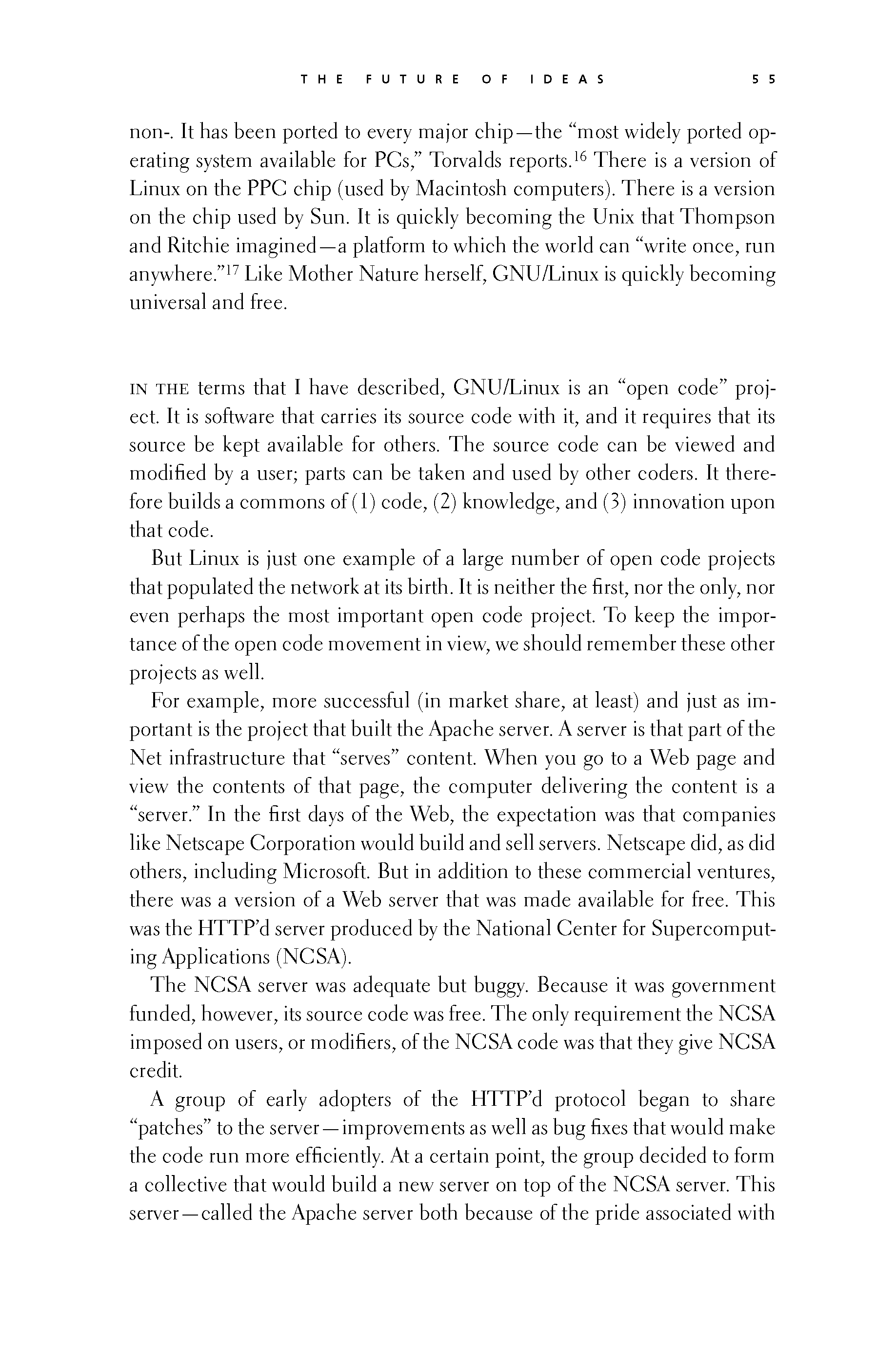 p054 _
-chap- _
toc-1 _
p055w _
toc-2 _
+chap+ _
p056
p054 _
-chap- _
toc-1 _
p055w _
toc-2 _
+chap+ _
p056
non-. It has been ported to every major chip -- the "most widely ported op-
erating system available for PCs," Torvalds reports.[4-16] There is a version of
Linux on the PPC chip (used by Macintosh computers). There is a version
on the chip used by Sun. It is quickly becoming the Unix that Thompson
and Ritchie imagined -- a platform to which the world can "write once, run
anywhere."[4-17] Like Mother Nature herself, GNU/Linux is quickly becoming
universal and free.
///\\\
In the terms that I have described, GNU/Linux is an "open code" proj-
ect. It is software that carries its source code with it, and it requires that its
source be kept available for others. The source code can be viewed and
modified by a user; parts can be taken and used by other coders. It there-
fore builds a commons of (1) code, (2) knowledge, and (3) innovation upon
that code.
But Linux is just one example of a large number of open code projects
that populated the network at its birth. It is neither the first, nor the only, nor
even perhaps the most important open code project. To keep the impor-
tance of the open code movement in view, we should remember these other
projects as well.
For example, more successful (in market share, at least) and just as im-
portant is the project that built the Apache server. A server is that part of the
Net infrastructure that "serves" content. When you go to a Web page and
view the contents of that page, the computer delivering the content is a
"server." In the first days of the Web, the expectation was that companies
like Netscape Corporation would build and sell servers. Netscape did, as did
others, including Microsoft. But in addition to these commercial ventures,
there was a version of a Web server that was made available for free. This
was the HTTP'd server produced by the National Center for Supercomput-
ing Applications (NCSA).
The NCSA server was adequate but buggy. Because it was government
funded, however, its source code was free. The only requirement the NCSA
imposed on users, or modifiers, of the NCSA code was that they give NCSA
credit.
A group of early adopters of the HTTP'd protocol began to share
"patches" to the server -- improvements as well as bug fixes that would make
the code run more efficiently. At a certain point, the group decided to form
a collective that would build a new server on top of the NCSA server. This
server -- called the Apache server both because of the pride associated with
[[55]]
p054 _
-chap- _
toc-1 _
p055w _
toc-2 _
+chap+ _
p056